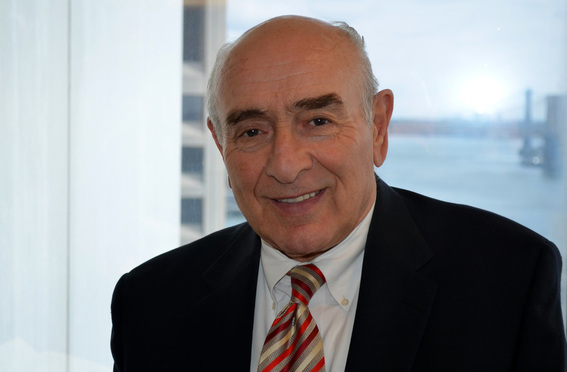Michael Hoenig

September 11, 2020 | New York Law Journal
What Real Jurors Like/Dislike About LawyersPerhaps, while COVID still materially affects our behavior, we should be cautious about preserving the integrity of the in-person jury trial, writes Complex Litigation columnist Michael Hoenig.
By Michael Hoenig
12 minute read

August 07, 2020 | New York Law Journal
2 Recent Decisions Serve as Reminders About Expert EvidenceIn an attempt to alert readers who might have missed them, this article briefly reports about two Appellate Division decisions dealing with expert testimony and other issues, Michael Hoenig writes in his Complex Litigation column.
By Michael Hoenig
7 minute read

March 06, 2020 | New York Law Journal
Litigators' Immunity From Non-Client LawsuitsIn this edition of his Complex Litigation column, Michael Hoenig discusses lawyer immunity from civil liability to non-clients for their statements or actions taken in connection with representing a client in litigation. He writes that "absolute" immunity is not necessarily so absolute. The "qualified" privilege doesn't protect lawyers all the time. But lawyer zealousness is given ample latitude to advocate for clients vigorously, sometimes aggressively.
By Michael Hoenig
8 minute read

February 07, 2020 | New York Law Journal
'Residual Hearsay' Exception: Recent Changes Bring More MuscleIn his Complex Litigation column, Michael Hoenig discusses the hearsay rule and some of its exceptions, particularly focusing on the newly revised revised Rule 807, which is now seemingly more muscular than the old rule and may go from rare use to a thriving battlefront.
By Michael Hoenig
10 minute read

January 10, 2020 | New York Law Journal
'Smart' Clothing: A New Liability Frontier?In his Complex Litigation column, Michael Hoenig uses the recent case 'Andrews v. Lands' End', where Delta Airlines flight attendants claimed their uniforms caused them adverse health effects, to discuss the current law and issues surrounding "smart clothing."
By Michael Hoenig
8 minute read

December 06, 2019 | New York Law Journal
Court Deference to Agencies' InterpretationsIn his Complex Litigation column, Michael Hoenig discusses the Supreme Court's decision in 'Kisor v. Wilkie', in which the court wrestled with the degree of deference courts must (or should) give to an agency's interpretation of its regulations.
By Michael Hoenig
9 minute read

November 08, 2019 | New York Law Journal
Recent 'Frye' 'Gatekeeping' RulingsIn his Complex Litigation column, Michael Hoenig discusses a recent trial court decision that teaches valuable lessons for lawyers as it wrestles on how to decide an exquisite battle of expert opinions by well-qualified neurologists. Litigators may well take sides on this interesting one.
By Michael Hoenig
12 minute read

October 15, 2019 | New York Law Journal
Recent Expert Reliability RulingsIn his Complex Litigation column, Michael Hoenig discusses recent decisions, one on design and causation issues and another on a warnings claim, which illustrate that "judicial gatekeeping for expert reliability continues robustly and can affect the outcome of litigation."
By Michael Hoenig
10 minute read

September 06, 2019 | New York Law Journal
Eavesdropping and Spying by Smart TVs and DevicesIn his Complex Litigation column, Michael Hoenig discusses a recent spate of developments regarding smart devices and consumer privacy. Privacy lawsuits and regulatory complaints are mushrooming. Corrective measures by manufacturers arguably will strengthen some defenses against claims. Yet, there are scores of millions of Smart TVs and devices sold before the remedial measures were instituted. Will litigation be a promising avenue?
By Michael Hoenig
12 minute read

August 09, 2019 | New York Law Journal
Is Products Liability Closing In on Amazon?In his Complex Litigation column, Michael Hoenig writes: Three decisions in July have ignited a potential firestorm of products liability exposure perhaps wider than the jurisdictions involved in the cases. Given Amazon’s huge product line, the numbers of purchasers and users, the diversity of the many third-party vendors, and the policy reasons articulated by these courts, it is likely that a flood of lawsuits lies ahead.
By Michael Hoenig
10 minute read



